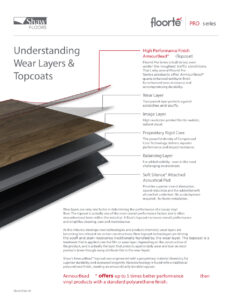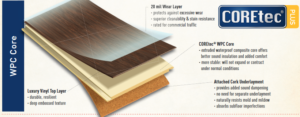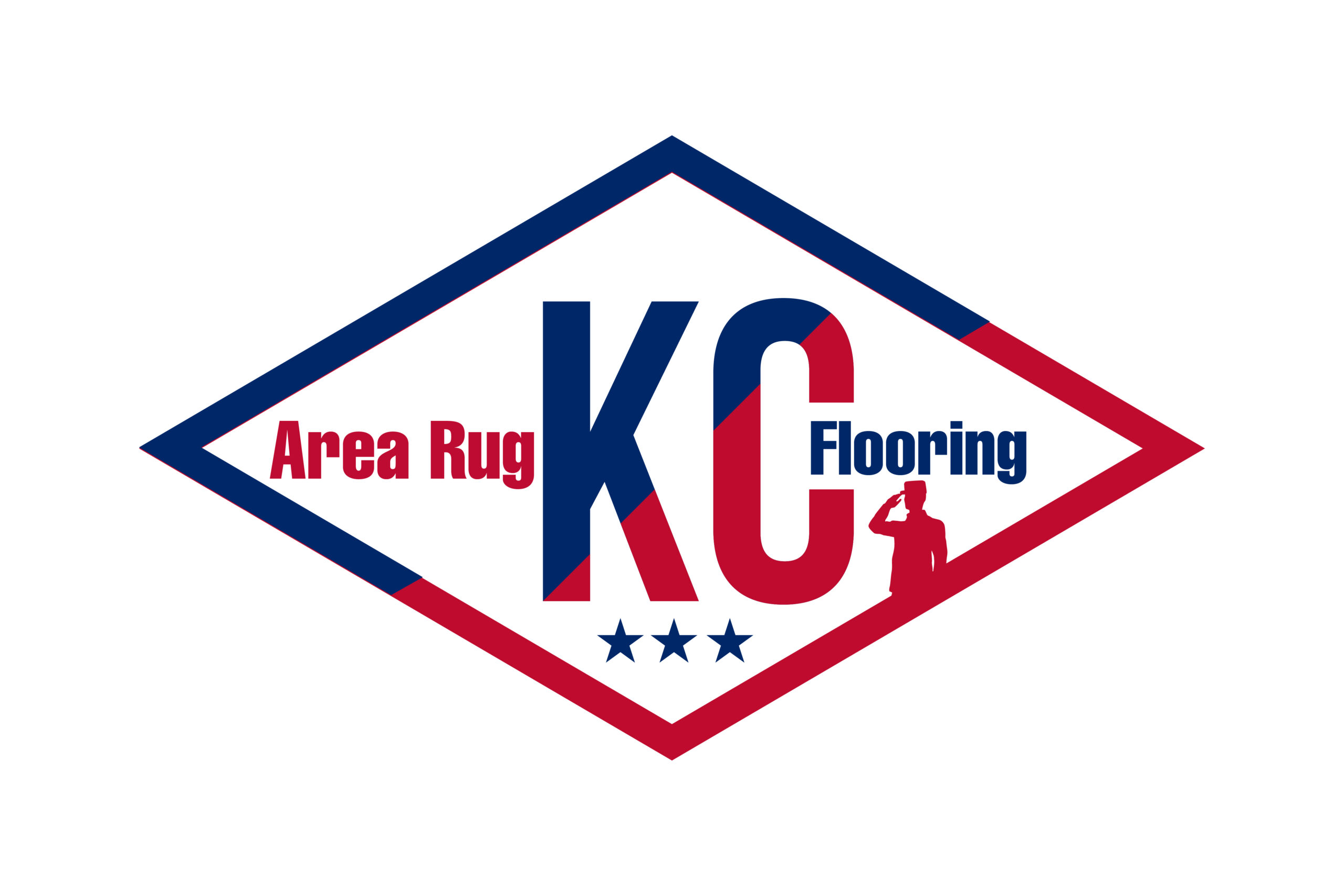In the realm of modern flooring options, vinyl has undoubtedly emerged as a top contender, offering an array of benefits such as durability, water resistance, and aesthetic versatility. Within the vinyl flooring category, two prominent contenders have gained considerable attention: Stone Plastic Composite (SPC) and Wood Plastic Composite (WPC) vinyl flooring (SPC vs WPC). These two variants share similarities but also exhibit distinctive features that cater to different preferences and needs. In this comprehensive guide, we delve into the contrasts between SPC vs WPC vinyl flooring, exploring their unique characteristics, pros, and cons.
Understanding SPC Vinyl Flooring
 What is SPC Vinyl Flooring?
What is SPC Vinyl Flooring?
SPC vinyl flooring stands for Stone Plastic Composite. As the name implies, it comprises a blend of natural limestone powder, polyvinyl chloride, and stabilizers. These components undergo a high-pressure hot press process to create rigid, dense core boards.
Pros of SPC Vinyl Flooring:
- Extreme Durability: SPC flooring is renowned for its remarkable durability. The limestone core imparts exceptional strength, making it resistant to impacts, scratches, and dents, ideal for high-traffic areas.
- Waterproof Properties: SPC flooring boasts superior water resistance, making it suitable for installation in moisture-prone areas such as bathrooms, kitchens, and basements.
- Dimensional Stability: The rigid core construction of SPC flooring renders it highly resistant to expansion and contraction due to temperature changes, ensuring long-term structural integrity.
- Easy Installation: SPC flooring often features click-lock installation systems, facilitating quick and hassle-free installation, suitable for DIY enthusiasts and professionals alike.
Cons of SPC Vinyl Flooring:
- Hardness: While the rigidity of SPC flooring contributes to its durability, it can feel harder underfoot compared to other flooring options, potentially reducing comfort.
- Limited Thermal Insulation: SPC flooring does not provide significant thermal insulation, which may result in colder floors during winter months, necessitating the use of area rugs or underfloor heating systems.
Exploring WPC Vinyl Flooring
 What is WPC Vinyl Flooring?
What is WPC Vinyl Flooring?
WPC vinyl flooring, or Wood Plastic Composite, comprises a composite core composed of wood flour, thermoplastics, and foaming agents. This composite core is encapsulated within a printed vinyl wear layer and protective topcoat.
Pros of WPC Vinyl Flooring:
- Comfort Underfoot: WPC flooring offers a softer and warmer feel underfoot compared to SPC, thanks to its foamed core construction, enhancing comfort and reducing noise transmission.
- Water Resistance: Like SPC flooring, WPC is waterproof, making it suitable for installation in areas prone to moisture and spills.
- Superior Sound Absorption: The foam core of WPC flooring effectively dampens sound transmission, reducing noise levels and creating a quieter indoor environment.
- Versatile Aesthetics: WPC flooring comes in a wide range of styles, colors, and patterns, mimicking the appearance of natural wood and offering diverse design possibilities to suit various decor preferences.
Cons of WPC Vinyl Flooring:
- Susceptibility to Compression: While WPC flooring offers enhanced comfort, it may be prone to indentation and compression under heavy furniture or sharp objects.
- Lower Density Core: The foam core of WPC flooring may be less dense compared to SPC, potentially resulting in reduced durability and susceptibility to damage in high-traffic areas.
- Limited Heat Resistance: WPC flooring may not be suitable for installation in areas exposed to direct sunlight or extreme heat, as it can expand and contract with temperature fluctuations, leading to potential warping or distortion.
SPC vs WPC – Final Choice?
In conclusion, the choice between SPC and WPC vinyl flooring ultimately depends on individual preferences, lifestyle requirements, and specific application needs. While both variants offer commendable benefits such as water resistance, durability, and aesthetic appeal, they exhibit distinct characteristics that cater to different scenarios.
For spaces requiring maximum durability and dimensional stability, SPC vinyl flooring emerges as the preferred choice, offering exceptional resistance to scratches, dents, and temperature fluctuations. On the other hand, WPC vinyl flooring excels in comfort underfoot, sound absorption, and versatile design options, making it an ideal choice for residential settings where comfort and aesthetics are paramount.
By understanding the unique features, pros, and cons of SPC and WPC vinyl flooring, consumers can make informed decisions, selecting the option that best aligns with their lifestyle, budget, and design preferences. Whether seeking rugged resilience or cozy comfort, both SPC and WPC vinyl flooring options present compelling solutions in the ever-evolving landscape of modern interior design.
- By: Samantha McCoy
- Category: Water Proof Flooring
- 0 comment

Leave a Reply